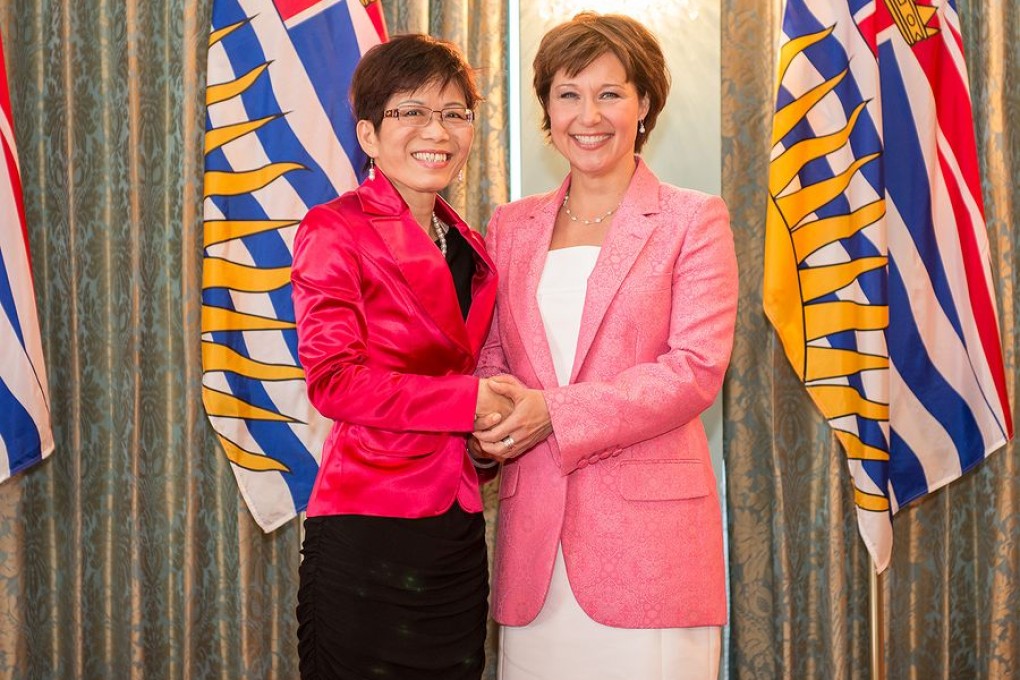North America gateway ripe for Asian investments
As one of the largest global exporters of softwood lumber, British Columbia has successfully fostered international trade while sustainably managing its rich natural resources for decades. Situated as a gateway to the Asia-Pacific region, the Canadian west coast province is one of North America's most competitive and dynamic places for trade and investment.

As one of the largest global exporters of softwood lumber, British Columbia has successfully fostered international trade while sustainably managing its rich natural resources for decades. Situated as a gateway to the Asia-Pacific region, the Canadian west coast province is one of North America's most competitive and dynamic places for trade and investment.
British Columbia attracts investors from a wide range of industries worldwide, from forestry, mining and renewable energy technology to international education, transport infrastructure and tourism. It is undertaking major expansions of its transport facilities to support increasing trade with Asia following an astounding 14.2 per cent growth worth US$29.8 billion of exports to the Pacific Rim in 2011.
British Columbia is primed to serve Asia as it responds to the region's growing demand for liquefied natural gas. The province possesses a vast supply of natural gas products, having more than 160 years' worth of natural gas reserves and extracting about 4 trillion cubic feet of natural gas each year. With abundant resources, a strategic location and a sound business environment, local and foreign companies in British Columbia enjoy an atmosphere ripe for investment.
Well-educated workers provide the required skills to support the wide range of investment opportunities in British Columbia. Thousands of immigrants arrive in British Columbia each year, deeply enriching the province's diverse working communities.
"We mobilise British Columbia's diverse population particularly those with business skills, and encourage them to work with local Canadians to nurture relationships, understand the culture and share knowledge on doing business," says Teresa Wat, British Columbia's newly elected minister of international trade. "Getting the immigrants and the locals to work together deepens our trading relationships with Asia-Pacific."
Tasked to strengthen British Columbia's relationships with Asia, Wat is a seasoned international relations professional, having worked in multiple Asian governments before emigrating to Canada.
The British Columbia Ministry of International Trade was created to diversify the province's economic trading partners, promote multiculturalism and attract investments that will spur job creation throughout the province. It supports British Columbia's Trade and Invest representatives in key cities worldwide and provides a link to the province's business network.
British Columbia has earned top marks for its leadership on cutting red tape and streamlining regulations. Its business incorporation processes are completed in only a matter of hours. "We provide custom-made services to potential investors. It's a person-to-person service, so the investor can walk through the whole investment experience without any kind of trouble," Wat says. "Canada's sound financial system and stable national economy also allow businesses to invest with confidence."
Providing companies with a financial boost via significant tax cuts, British Columbia's general corporate income tax rate of only 26 per cent is among the lowest of the G7 countries.
The province also provides tax credits and exemptions to international business activities such as research and development, mining exploration, oil and natural gas production, film and TV production, and new media including digital animation and game development.
British Columbia continues to build on the strength of Canada's traditional high-quality natural resource products as it shifts its major export markets from the United States and western Europe to China and other Asian countries.
Selling about 2.5 billion renminbi bonds (HK$3.19 billion) with a coupon of 2.25 per cent, British Columbia boosted interest from the international renminbi bond issuance market. British Columbia is the first non-Chinese government entity with an AAA rating to issue one-year "dim sum" bonds, encouraging new issuers and opening up a market that has been mostly limited to Chinese companies and large multinationals.
"Asian companies should set up their headquarters in British Columbia. With a diverse population that speaks the same language, Chinese companies will be comfortable dealing with Canadian firms," Wat says.
"We have a skilled labour force and pro-business government. We are the first jurisdiction to issue bonds in renminbi. That signals our commitment to China and our openness to trading with the rest of Asia."